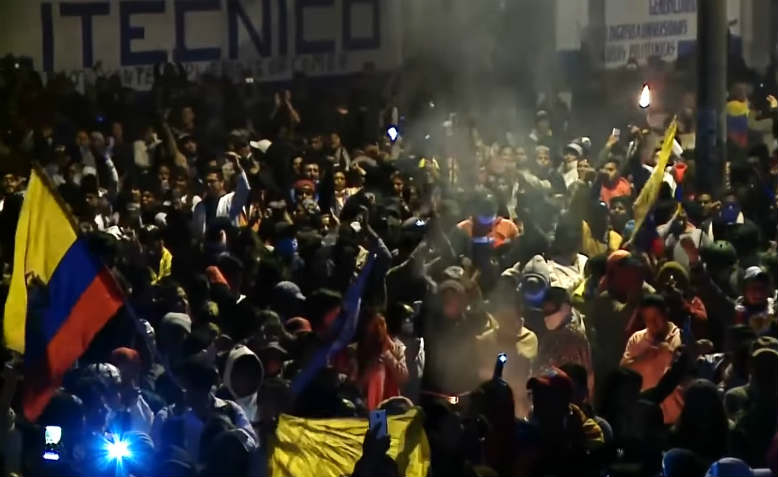 Ecuador protesters celebrate. Photo: YouTube
Ecuador protesters celebrate. Photo: YouTube
Though the fight is far from over, Ecuador’s indigenous-led anti-austerity movement has won a major concession from the government, reports Jonathan Maunders
On Monday, in a huge victory for protesters and the Ecuadorian people, the country’s government agreed to reinstate fuel subsidies.
The deal was reached as a result of increasing pressure on President Lenín Moreno led by indigenous activists, students and trade unionists.
Moreno previously scrapped the subsidies and introduced a raft of austerity measures with a view to acquiring a loan from the International Monetary Fund.
The government initially responded to the protests by declaring a state of emergency, imposing a military-enforced curfew in the capital city, Quito, and moving government operations to the country’s main port city, Guayaquil.
Following televised talks, one of the stipulations of the indigenous activist groups, Moreno was forced into an embarrassing climbdown, restoring the fuel subsidies.
This climbdown was met with rapturous applause from protest leaders in the negotiations and the activists watching from the streets of Quito.
Moreno’s decision to end fuel subsidies led to rapid rises in fuel and food costs, initially prompting transport union members to take to the streets of Quito before being joined by indigenous communities and students.
Conaie (the Ecuadorean Confederation of Indigenous Nationalities) have consistently argued over recent weeks, including during the talks, that Moreno’s policies represented a coup by the IMF and the country’s neoliberal right.
They’ve also angrily rejected Moreno’s repeated suggestions that the protests were being coordinated by his predecessor, Rafael Correa, and Venezuela’s Nicolas Maduro.
Conaie can rightly celebrate this “victory for popular protest” but they must remain steadfast; further battles with the country’s right and its foreign backers lie ahead.

